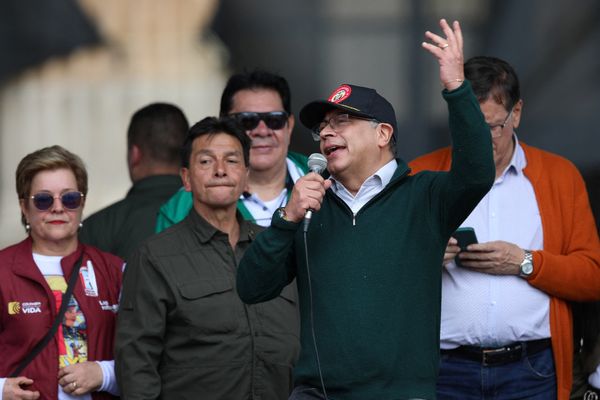
The Voice is about listening to First Nations peoples. So why are so many of Australia’s media and political elites so keen to chin-strokingly condescend to those voting yes, explaining what they should really be asking for and how they should be going about it?
The parliamentary process has always worked thusly: well-meaning people (you know, the ones who “just know better”) gut the Voice of its power, to ensure it’s more palatable to what they envisage is “moderate” (*cough* white settler) opinion.
With luck, we’ll soon be past News Corp’s amplification of the last desperate appeal of the Apology-boycotting, “African gangs”-finger-pointing Peter Dutton to have the government cancel the referendum in, of course, a gesture of reconciliation.
Now we’re into the run-up to the referendum campaign proper, with the vote likely to be held in October. Expect those same well-meaning media critics to pivot from softening the key demand to be heard into anodyne recognition, to a carping over how the campaign is run.
It’s already started, you say? Well, I’m shocked!
Time for a bit of media humility, time to hit pause, before the traditional media roll on with their all-too-typical campaign meta-coverage — that is, largely uninformed, match-review-style commentary focusing on tactics with an “only we can see what’s really going on” bent, rather than any substantive analysis.
It’s already started, with a reporting agenda (largely set on the front page of The Australian) that bounces back and forth over the same talking points: the Uluru proponents go too far, they’re not clear on the details, they disrespect the genuine views of their opponents.
And, most self-interestedly, there’s the urging from commercial media that the problems could all be solved if the Yes case just spent a whole lot more on mass media advertising.
Before the commentariat gets too invested in its party-conflict, poll-focussed narrative, perhaps it should lean in and listen to the latest attempt to explain what’s been going on in this month’s Quarterly Essay, Voice of Reason: On Recognition and Renewal, written by Cobble Cobble woman of the Barungam Nation and leading Voice activist Megan Davis.
It goes to the heart of the problem with “we-know-best” reporting: Australia’s media elite have, as a matter of professional pride, little or no experience in the hard grind of politics itself — that hard work of activism (almost always outside Canberra and the major political parties) that makes change happen.
“The continual refrain of government”, she writes of the Voice campaign, “was not to be ambitious … we were lectured about political pragmatism. Or we would encounter the old chestnut … that the perfect is the enemy of the good and politics is the art of possible. Meh.”
The great power of the Voice is that it forces a recognition that this political savvy is simply wrong: the best of politics is not settling for the possible. The best is the hard activism that makes the improbable suddenly achievable.
It’s been that not-Canberra, not-politics-as-usual way of operating that has carried the Voice from a far-fetched aspiration to a potentially nation-changing referendum. And it’s why we should be sceptical that the commentariat, suddenly, knows better than the campaigners how to turn that “probable” into reality.
The generation of activist leaders who have been carrying that load — in the community and now in Parliament — have already demonstrated their intellectual substance and strategic smarts. They’ve done the hard part of getting the Voice on the agenda. We can trust their judgment about how to finish it off.
Importantly, Davis’ essay reminds us just where the challenge in taking that last step comes from. In part, it’s the misinformation and disinformation powering the racist right through social media and, this week, given a boost with the announcement of a special 24/7 Sky channel to feed the company line into the platforms.
But the challenge also stems from “the failure of just-minded people to hear well — from those who have suffered — what recovery or reconciliation after massive violence or longstanding injustice would require”; people who, she writes elsewhere in the essay, are “disconnected from what the community needs, but who think they know best”.
Sixty years ago, in his eviscerating letter from Birmingham Jail, Martin Luther King Jr wrote about his frustrations with “the white moderate”, saying: “Shallow understanding from people of goodwill is more frustrating than absolute misunderstanding from people of ill will. Lukewarm acceptance is much more bewildering than outright rejection.”
With the referendum just months away, it’s time for Australia’s “just-minded people” to abandon the luxury of critique for the embrace of an activist campaigning.






